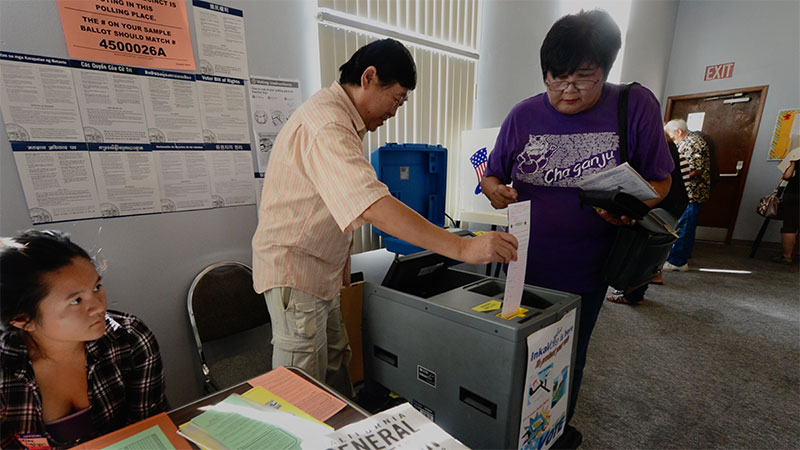While we think of voting as the principle inalienable right of our democracy, the fight to cast a ballot is as old as the nation itself, and by no means a guarantee for many Americans. As America prepares to celebrate the centennial of the ratification of the 19th Amendment giving women the right to vote in 1920, this short film reports on the ongoing struggle for some Americans to exercise their voting right.



Produced by Andrew Fredericks and Marley Cogan, THE RIGHT TO VOTE looks at attempts to suppress the right to vote of indigenous Americans in North Dakota and naturalized citizens in Texas. Activists, attorneys and voters themselves banded together in each state to defend their access to the ballot box. This film and the stories in it are currently being used in campaigns to raise awareness about voting rights, particularly in places where the right to vote is threatened. The video is available free of charge as a catalyst for civic dialogue.
The Right to Vote (17 mins)
The Right to Vote: Texas (8 mins)
In January of 2019 following a double-digit increase in voter turnout during the midterms, which included a surge in minority voting, the Texas Secretary of State publicly claimed that there were nearly 100,000 non-citizens registered to vote in the state and sent their names to county election officials for possible removal from the voter rolls. The Attorney General’s office said they stood ready to prosecute. Voting rights advocates quickly filed suit and the attempted purge was revealed to be based on flawed data. It was subsequently halted by a federal judge.
Maria’s Story: Texas (4 mins)
Maria Garcia came to the US when she was only three months old, and became a citizen in May of 2018. She was excited to be able to register to vote for the first time. But when close to 100,000 voters were nearly purged from the voter rolls in Texas, new citizens like Maria feared they would be denied access to vote. She joined with other community activists to protect her rights.
The Right to Vote: North Dakota (6 mins)
The North Dakota legislature passed a bill that required all registered voters to have a voter ID that included a permanent street address. Many saw it as a targeted attempt to limit the vote of the Native American community since customary addresses are not the norm on the state’s five reservations. On the Standing Rock reservation, tribal activists and their allies mobilized the community in response to the law, which resulted in a record voter turnout in 2018. But the law is still in place, and voting rights advocates fear that will be strengthened leading up to the 2020 election.
Contact us to use any of this media for public education.

